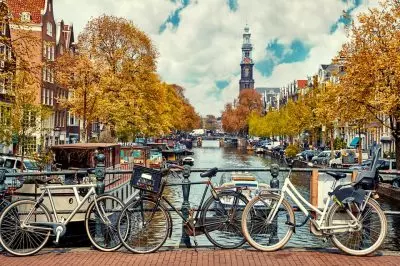 Online gambling companies that are willing to get licenses allowing them to offer their services on the territory of the Netherlands will be required to purge their customer databases acquired before the liberalization of the country’s regulated market.
Online gambling companies that are willing to get licenses allowing them to offer their services on the territory of the Netherlands will be required to purge their customer databases acquired before the liberalization of the country’s regulated market.
A few days ago, Sander Dekker, the Minister for Justice and Security published responses to some questions of the Dutch lawmakers in regard to the final draft of the country’s online gambling legislation.
Along with other information provided on the matter, Mr. Dekker shared the Government’s belief that the official release of the Remote Gaming Act should not be delayed by the coronavirus pandemic. The piece of legislation is set to take effect on January 1st, 2021, while all the new holders of a remote gambling license are planned to start operation simultaneously on July 1st, 2021. Despite the confidence of the Government that no such delay will take place, the Minister for Justice and Security confessed that, still, some delay in the aforementioned schedule cannot be fully ruled out.”
For now, only the responses to the Dutch legislators’ questions are available, with some of them addressing the Dutch customer databases that have been built up intentionally by licensed companies over the years they have offered their services on the country’s market without specific local permission to do that. According to Mr. Dekker, such customer databases have provided some operators with a significant advantage over other companies that have not built such databases up.
It Remains Unclear Whether Monopoly Holland Casino Will Have to Stick to the New Requirements, Too
 As a result of these observations, the Dutch Minister for Justice and Security revealed that the country’s gambling regulatory body Kannspelautoriteit (KSA) will require from online gambling operating license applicants to make sure they have prohibited the use of any customer databases gathered before the liberalization of the market.
As a result of these observations, the Dutch Minister for Justice and Security revealed that the country’s gambling regulatory body Kannspelautoriteit (KSA) will require from online gambling operating license applicants to make sure they have prohibited the use of any customer databases gathered before the liberalization of the market.
It is still unknown how this requirement will be applied to Holland Casino, which is currently the holder of the retail casino monopoly in the country. The company has already shared its intentions to participate in the online gambling sector along with its global rivals. However, the monopoly has already built up its database of Dutch land-based customers, so it is likely to fully intend to use it when it makes its first steps in the remote gambling sector.
A similar situation occurred in Sweden, when Svenska Spel, the state-run gambling monopoly was required to split its operations into separate retail and online divisions ahead of the official launch of the country’s liberalized online gambling sector in January 2019. The measure has been taken by the authorities as a response to the complaints of other international licensees that the existence of such a customer database provided the state-run gambling company with an unfair advantage.
Now, Minister Dekker has also hinted that the Holland Casino would have to start operation in the online gambling sector under the same conditions that are applicable to all the new entrants to the regulated market, which means that it would have to generate its Dutch customer base in accordance with the new rules.